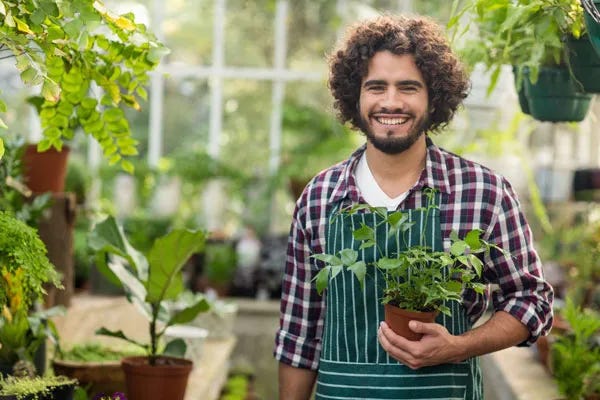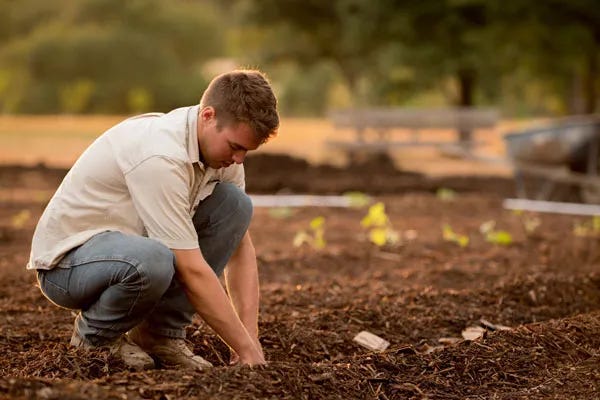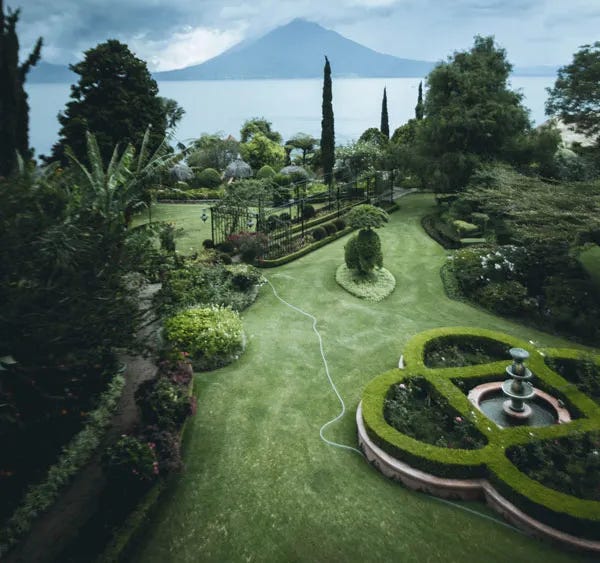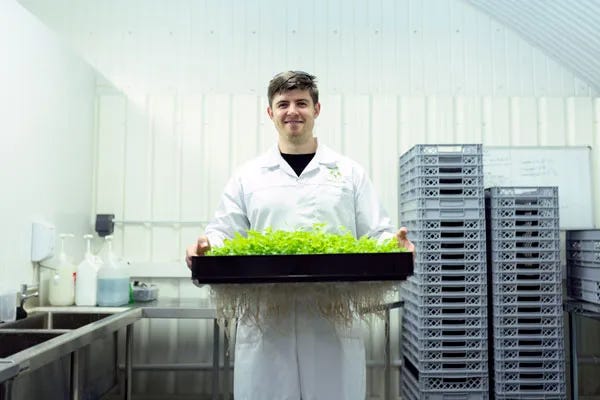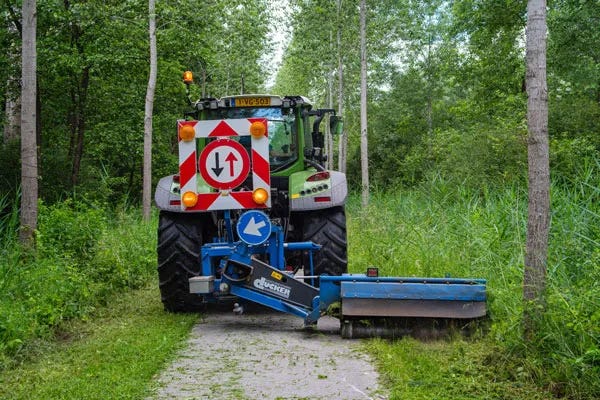25 careers to consider if you are fascinated by plants
Including career paths you might not have thought of!
If you love plants, you’ll want to pursue a career that allows you to interact with them on a day-to-day basis. But looking at the high rate of urbanisation and technological advancements, you may wonder whether you’d have a chance to build a successful career around your passion for plants or nature. The reality is that there are plenty of opportunities out there. Below I explore some of the best career opportunities that people who are fascinated by plants should consider:
1. Horticultural Product Management
If you decide to pursue a career in horticultural product management, you’ll be involved in working with internal partners in a horticulture company and providing customer service to people who love plants as much as you do. As a matter of fact, product managers in horticulture companies focus on providing customers with positive experiences right from the pre-sale stage to the post-sale stage when they set up their product portfolios.
The nature of this career requires managers to have a good understanding of the product cultivation process as well as post-harvest handling processes. This knowledge enables horticultural product managers to engage customers knowledgeably. To pursue a career in horticultural product management, you need to complete a Bachelor’s degree and have good communication, sales and marketing skills.
2. Conservation Science
Another ideal career for anyone who gets fascinated by plants is conservation science. When you pursue this career, you become a conservation scientist. This means you’ll be involved in taking care of natural resources like land, water, and the environment. In this job, you’ll be helping landowners and governments make the best decisions on how to use and conserve lands including managing forests, parks, and any other natural lands that are under their ownership.
Conservation science is very similar to environmental science in the sense that they involve helping people make better decisions that protect the environment. However, a career in environmental science is largely involved in conserving solid, water, air, and land in order to protect the earth from being destroyed by man-made activities like urbanisation, fracking, and pollution.
One of the jobs that you’ll find under conservation science is being a conservation biologist—which involves studying the climate and its effects on our natural resources. To work in this career, you need to have a Bachelor’s degree and an advanced degree to qualify for a senior position.
3. Botanical Science
Plants have long been used as food and medicine. This is precisely what attracts people to gardening and botany. In very simple terms, botany involves studying and caring for plants. Botanists are scientists who specialise in the biology of plants. They are experts in different vegetations including cacti, grass, shrubs, algae, and edibles like fruits, herbs, and vegetables. Botanists differ from gardeners and landscapers in the sense that botanists conduct research on plants while the latter only grow, arrange, and care for them.
As a career, botanical science is a broad field that creates space for numerous kinds of jobs that would involve working with many kinds of plants. If you decide to pursue a career in botanical science, you’ll need to pick an area or several areas of focus. For instance, you can choose field botany where you’ll be involved in the search for new plant species, or opt for medicinal botany where you can participate in the search for new plants that can treat diseases.
To pursue a career in botanical science, you need to hold a Bachelor’s or a Master’s degree. A career in senior research positions also requires a Master’s and Doctorate degree.
4. Organic Farming
With more people becoming conscious of healthy eating, organic food has become increasingly popular. While farming may seem like an old and non-glamorous career, organic farming is becoming the new frontier as farmers seek to play an active role in improving food production in different parts of the world. If you live in the city and want to engage in organic farming, consider joining sustainable farming clubs or urban gardening groups that grow plants in designated parks and rooftops. This is a great way to bring nature to the city and build an organic farming career.
5. Plant Biologist
A career in plant biology involves becoming an expert in different vegetation including flowers, grass, algae, shrubs, moss, cacti, and edibles like vegetables, fruits, and herbs. As a plant biologist, you’ll be involved in researching the biology of different plants and their impact on the ecosystem.
6. Plant Pathology
Just like animals, plants also get attacked by diseases. To understand plant diseases and determine their characteristics, plant pathologists run tests and conduct laboratory experiments.
7. Plant Geneticist
Another plant-related career that allows you to create new types of plants is plant genetics. As a plant geneticist, you’ll study genetics in botany. Your work will revolve around isolating different genes. The end goal is to develop specific and favourable plant traits.
8. Horticultural Therapy
Anyone who is fascinated by plants and loves helping people should consider becoming a horticultural therapist. This career combines social service with gardening to help support and heal people who have mental and physical health problems. As a horticultural therapist, you’ll be engaging patients in plant-based activities such as gardening as part of their therapy treatment plan.
9. Floriculturist
If you like choosing and arranging flowers for special events such as weddings and debuts, then you might want to consider becoming a floriculturist. A floriculturist cultivates flowers and ornamental plants and design bouquets or supplies such flowers for commercial use. Floriculturists with advanced degrees are also found in universities and in the horticulture industry to conduct research where they develop and breed new varieties of flowers.
The minimum education requirement for becoming a floriculturist is a high school diploma. However, research and higher-level positions typically require a Bachelor’s degree. Those with advanced degrees can also teach courses in floriculture and conduct research studies.
10. Plant Videographer
A plant videographer creates films or documentaries that are centered on natural resources, which would usually include plants. These films would also focus on environmental issues and problems that involve plants. Think about the shows that you see on National Geographic or Discovery Channel. If you would like to work for such shows behind the scenes, then being a plant videographer would be a great career path for you.
11. Horticulture Writer
Do you enjoy writing and gardening at the same time? If that’s the case, then you’ll find this career very interesting. As a specialist horticulture writer, you’ll write for television and radio shows, gardening websites, and farming magazines. It’s definitely a great career choice if you love crops or plants and want to share your knowledge with the world.
12. Ethnobotanist
An ethnobotanist studies a region’s plants and their practical uses through traditional and passed on knowledge by the local culture and their people. The minimum education required is a Bachelor’s and a Master’s degree.
13. Plant Morphologist
A plant morphologist studies the physical form and external structure of plants. Plant morphology is useful in the visual identification of plants. The minimum education requirement is a Bachelor’s or Master’s degree.
14. Ecologists
Ecology is a branch of biology, but this branch focuses on the relationships of different kinds of organisms within an environment. Ecology covers a broad range of studies, and if you are interested to focus on plants, then you may just specialise in terrestrial ecology. Other specialisations in this field would include aquatic and evolutionary ecology. The minimum education requirement is a Bachelor’s degree.
15. Landscape Maintenance Specialist
If you like to decorate and maintain lawns using plants, being a landscape maintenance specialist is a great career option for you. A landscape maintenance specialist typically works for a landscaping company and maintains lawns and landscapes for commercial or residential customers. The minimum requirement is to obtain a certification and pesticide license from your state.
16. Permaculture Designer
If you like to create nature-inspired pieces or create mini-ecosystems, then becoming a permaculture designer is a great career to consider. The term permaculture originally meant “permanent agriculture”, but was expanded to also mean “permanent culture”. There are several branches in this field, and that includes ecological design, ecological engineering, environmental design, and construction.
17. Plant Scientist
A plant researcher is a scientist who carries out academic or scientific research on plants. If you like to assist botanists, biologists, and ecologists with plant studies, this is a great career option. The minimum education requirement is a Master’s or Doctorate degree.
18. Pomologist
A pomologist studies and cultivates different types of fruits. Aside from that, they often research, develop, and even breed new varieties of fruits and nuts that are more beneficial for human consumption. To be a pomologist, one needs to have a Bachelor’s degree. However, research and higher-level positions typically require a Master’s degree or a Ph.D.
19. Forestry
Foresters work to supply an adequate amount of wood products to the market. As a forester, you should follow policies and regulations for the country’s forested areas as well as protect the environment.
20. Soil Scientist
As a soil scientist, you’ll study the soil’s mineralogical, biological, physical, and chemical composition. You will also participate in researches for the management, yield, and production of crops and agriculture overall. Soil scientists use their knowledge to help improve plant growth and crop production. To study different forms of crop growth and agriculture, soil scientists also classify soils.




